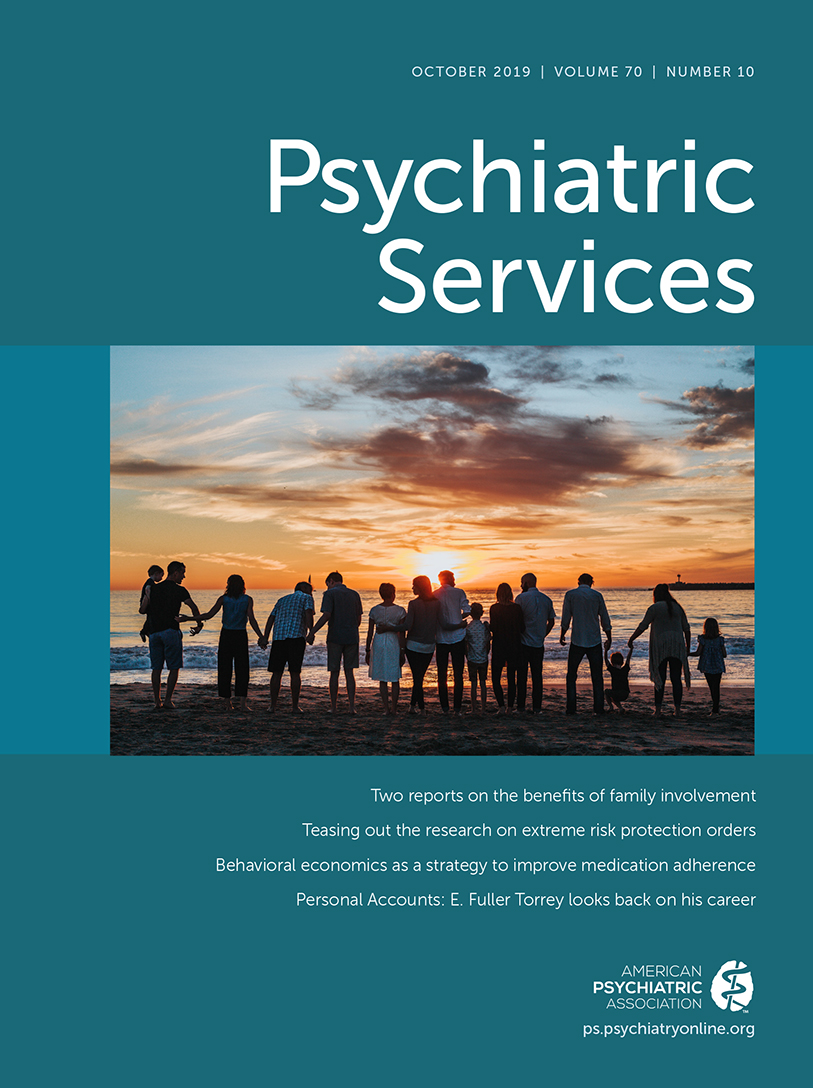Shared Decisions and Agency: Better Engagement Tools
In their Open Forum, Daniel Guinart, M.D., and John M. Kane, M.D., explore the use of monetary incentives to improve medication adherence for individuals with psychiatric diagnoses, including schizophrenia, schizoaffective disorder, and bipolar disorder (1). In medicine, “adherence” describes the degree to which patients take medications as prescribed and follow other professional recommendations. Guinart and Kane assert that “poor adherence has been associated with increased risk of relapse, use of emergency rooms, hospitalization, suicide attempts, violence and legal problems, as well as poor social and occupational functioning.” They cite a study conducted in the United Kingdom that found that individuals given financial incentives (up to $34 per month) to receive prescribed depot medications had better adherence rates compared with individuals who received treatment as usual. Guinart and Kane conclude that “patients with severe mental illness can benefit from this approach,” an assertion that calls for further discussion.
Guinart and Kane acknowledge that “the use of financial incentives raises ethical concerns that need to be addressed. . . . When implementing this strategy, measures must be taken to ensure that patients are consenting freely and not out of pure financial need.” Yet people motivated by monetary incentives have some economic need. Coercion seems unavoidable when people receive needed resources for medication compliance. This presents an ethical dilemma.
Medication can be a powerful tool to lessen troubling psychiatric symptoms. At the same time, medications come with both desired and unwanted effects and often serious metabolic and other short- and long-term side effects, such as tardive dyskinesia. Research shows that some individuals can successfully use reduced amounts or discontinue some prescribed drugs when in psychiatric care. These findings call into question incentives to encourage medication compliance and instead highlight the value of continued dialogue and flexibility with prescribers. In addition, many elements beyond medication are required for lasting recovery, including educational, employment, peer, housing, and other psychosocial supports. Placing the primary focus on medication adherence is misguided. Even Guinart and Kane found that, “though the reported increase in adherence rates is substantial, neither of the two randomized studies found a subsequent improvement in clinical outcomes such as severity of symptoms or hospitalization rate.” Thus, although medication is helpful for many individuals, adherence alone may not always correlate with desired treatment outcomes. Coordinated services that go beyond compliance and instead empower participant agency and comprehensive treatment planning will lead to the most person-centered services and enduring recovery.
Guinart and Kane note that improvements in adherence decline when financial payments stop. Instead, approaches that prioritize individual and family involvement are both ethically sound and more likely to result in service engagement. Shared decision making has been found to facilitate dialogue, patient agency, and collaborative planning. People are more likely to adhere to plans they helped create.
Mental health conditions have complex etiologies beyond the person. People live within families and social networks affected by multifaceted political and socioeconomic conditions that affect mental health difficulties and successful recovery. Efforts to address poverty are critically necessary for lasting recovery. Unaddressed histories of individual and collective trauma are also surprisingly common. Treatment approaches must be broad and address not only individual symptoms but also underlying systemic factors. For example, social isolation is a known causal factor in mental health conditions. Likewise, resources to strengthen social connection are necessary for effective treatment.
Thus, instead of paying people to take medications, inviting individuals into a shared decision-making process that maximizes their self-determination and includes members of their social network is more likely to lead to comprehensive treatment planning and service engagement. To build this approach, the Mental Health Association of Westchester recently started to offer social network meetings designed to help individuals during times of crisis or heightened need by using the peer-supported version of Open Dialogue (POD), currently being piloted at locations around the world. In the POD model, clinicians and peer specialists work together to engage with patients and their social networks. Our initial outcomes are promising; POD seems to offer integrated, sustainable, and person-centered services. This and similar approaches to improve treatment engagement by maximizing patient and family agency merit further study.
1 : Use of behavioral economics to improve medication adherence in severe mental illness. Psychiatr Serv 2019; 70:s201900116Link, Google Scholar



